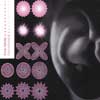Eötvös Electrochronicle
A fine collection of stimulating works which display Eötvös’ sensitivity to sound itself
View record and artist detailsRecord and Artist Details
Composer or Director: Peter Eötvös
Genre:
Chamber
Label: BMC
Magazine Review Date: 6/2003
Media Format: CD or Download
Media Runtime: 54
Mastering:
Stereo
DDD
Catalogue Number: BMCCD072

Tracks:
| Composition | Artist Credit |
|---|---|
| Music for New York |
Peter Eötvös, Composer
András Dés, Bodhran László Dés, Soprano saxophone Peter Eötvös, Electronics Peter Eötvös, Composer |
| Electrochronicle |
Peter Eötvös, Composer
Mesias Maiguashca, Electric organ Peter Eötvös, Organ Peter Eötvös, Composer |
| Dervish dance |
Peter Eötvös, Composer
Csaba Klenyán, Clarinet Peter Eötvös, Composer |
| 'Now, Miss!' |
Peter Eötvös, Composer
János Négyesy, Violin Peter Eötvös, Organ Peter Eötvös, Composer |
Author: kYlzrO1BaC7A
The Budapest Music Center’s coverage of Peter Eötvös continues with this disc of electro-acoustic pieces mainly from the early 1970s. As the composer himself sees it, the distinction between musical ‘construction’ and ‘improvisation’ becomes blurred at the hands of a responsive interpreter – of relevance when the music is situated, as here, near that boundary line in the first instance.
Music for New York synthesizes, literally and conceptually, the improvising of zither and hurdy-gurdy – to which, 30 years on, saxophone and bodhrán (single-headed frame drum) contribute further layers of improvised material. It adds up to a vibrant, multi-layered texture – redolent more of electronic-jazz experiments à la Bitches Brew-era Miles Davis than the collective improvisations of Stockhausen, with whom Eötvös worked extensively at the time. A ‘sound-play’ based on Samuel Beckett’s Embers, ‘Now, Miss!’ has violin and electric organ – again transformed by synthesizer – simulate the dialogue of characters on a beach, against which the sound of waves functions as an ambient backdrop. Evocative, but not so intriguing as Electrochronicle – eight studies, created at sessions during June 1974,in which two electric organs are transformedin a way that recalls the No Pussyfooting process-pieces of Robert Fripp and Brian Eno. Curious how such connections are suddenly made apparent after three decades.
Dating from as recently as 1993, Dervish Dance opens out the implicit harmony of a solo clarinet into a plangent, threefold image of itself. It rounds off a fascinating insight into Eötvös at his most experimental, though with a sensitivity towards sound and its transformation that has been carried through to his impressive concert works of the past decade. Brief butinformative notes from the composer complete a release that admirers of Eötvös and electronic music in general will need to acquire.
Music for New York synthesizes, literally and conceptually, the improvising of zither and hurdy-gurdy – to which, 30 years on, saxophone and bodhrán (single-headed frame drum) contribute further layers of improvised material. It adds up to a vibrant, multi-layered texture – redolent more of electronic-jazz experiments à la Bitches Brew-era Miles Davis than the collective improvisations of Stockhausen, with whom Eötvös worked extensively at the time. A ‘sound-play’ based on Samuel Beckett’s Embers, ‘Now, Miss!’ has violin and electric organ – again transformed by synthesizer – simulate the dialogue of characters on a beach, against which the sound of waves functions as an ambient backdrop. Evocative, but not so intriguing as Electrochronicle – eight studies, created at sessions during June 1974,in which two electric organs are transformedin a way that recalls the No Pussyfooting process-pieces of Robert Fripp and Brian Eno. Curious how such connections are suddenly made apparent after three decades.
Dating from as recently as 1993, Dervish Dance opens out the implicit harmony of a solo clarinet into a plangent, threefold image of itself. It rounds off a fascinating insight into Eötvös at his most experimental, though with a sensitivity towards sound and its transformation that has been carried through to his impressive concert works of the past decade. Brief butinformative notes from the composer complete a release that admirers of Eötvös and electronic music in general will need to acquire.
Discover the world's largest classical music catalogue with Presto Music.

Gramophone Digital Club
- Digital Edition
- Digital Archive
- Reviews Database
- Full website access
From £8.75 / month
Subscribe
Gramophone Full Club
- Print Edition
- Digital Edition
- Digital Archive
- Reviews Database
- Full website access
From £11.00 / month
Subscribe
If you are a library, university or other organisation that would be interested in an institutional subscription to Gramophone please click here for further information.




